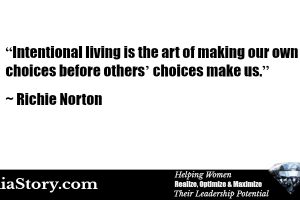Today, let’s focus on the second step: Hate the Problem.
Okay, maybe “hate” is too strong of a word. Or, maybe not. After all, when we are unhappy with the situation or where we are, the pain of staying the same must be greater than the pain of change in order to motivate us. In other words, we have to want to change pretty bad in order to overcome our discomfort with change. For example, for years, I was pretty socially incompetent. I wasn’t shy necessarily, I just lacked the skills to interact with people socially. Growing up as an isolated abuse victim, not going to school, not going to church, and learning to hide my shame and fear, I never developed good “people” skills. I didn’t know such a thing existed!
It wasn’t until I started waiting tables that I realized just how poor my social skills were. The pain of staying the same was much greater than the pain of change. I was socially awkward and appeared introverted. Those aren’t great qualities for someone trying to make a living on customer tips in a service industry. Trust me. My tips got A LOT better when I learned to change how I interacted with people. But, it wasn’t comfortable.
We have to want to change pretty bad in order to overcome our discomfort with change.
When we are trying to stay motivated through the discomfort of changing ourselves, learning something new, or breaking a bad habit, it’s much easier to stay motivated when we hate the problem instead of loving the solution. It’s not just semantics, it’s a paradigm shift. I didn’t love my solution – develop better social skills. It was uncomfortable, it felt unnatural, and I wasn’t any good at it. No one enjoys that feeling. Instead of loving the solution, focus on “I don’t like the problem.” It’s a much better motivator.
Here’s another example. If you want to lose 10 pounds, you know the solution: don’t eat that piece of chocolate cake. Loving the solution of not eating that rich, fudge piece of decadent chocolate isn’t a strong motivator. Because, no one loves that solution (and, we do love the cake!). Instead, learn to hate the problem. In this example, the problem is self-discipline, or the lack of it rather. Hate the problem: “That cake has more control over me than I have over myself.” And, that’s a much better motivator because it means you are GAINING something when you change (s elf-discipline) instead of losing something (yummy cake). We all like to win so present the setback in the form of a win/win instead of a win/lose.
elf-discipline) instead of losing something (yummy cake). We all like to win so present the setback in the form of a win/win instead of a win/lose.
Tomorrow, we’ll talk about the third step in turning your setback into a comeback!
Interested in learning more? Join me in February 2018 for a women’s retreat with sessions on overcoming adversity and issues like anxiety, shame,
and fear; as well as sessions on creating and executing your action plan to make 2018 your best year yet!

